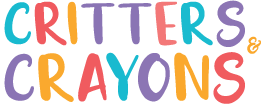There can’t possibly be a child on the planet who hasn’t told a fib or two. Often it is an attempt to avoid being in trouble for something they know is wrong. Which, when you think about it, is a positive sign that they do actually know the difference between right and wrong! Nonetheless, lying is not nice and can often make a situation worse. In addition, a child who lies and gets away with it will feel they can manipulate any situation and avoid punishment no matter how big their misdemeanors.
Developmental age and lying
Research has shown that children will tell their first lies between the ages of 2 and 4. For example, spotting crayon on the wall a mum asked her 2 year old “oh no, who has drawn on the wall?” to which her daughter replied “wasn’t me, was teddy did it”. This shows the child is aware of herself as separate from her mum and able to consider her thoughts as being different to mum’s. Also, unhelpfully, adults ‘train’ their children to tell subtle lies to avoid hurting people’s feelings. Little children say exactly how they feel for example, to people with different coloured skin or granny’s cooking, yet society encourages them to suppress those truths. Hence, a young child will get mixed messages about lying.
Older children will lie for self-preservation purposes. They choose to lie to prevent themselves getting the blame for something they have done. They might lie to improve their status too, for example, one little boy consistently told his school friends that his dad was going into space on a rocket. Another reason for lying might be to get a reward, for example, some children, left to their own devices to play a game where points are scored, will cheat and falsify their scores in order to win.
By age 4 a child will generally know that it is wrong to tell lies. An adult can usually tell when they are lying as their body language can give them away. They will appear awkward or uncomfortable. When asked to repeat a situation, a 4 year old’s story will change as they lose track of truth or untruth. As a child gets older, they will become more sophisticated in the way they lie. They will try to weave elaborate alibis that an adult can usually unpick by using what they know is true. Take for example, the two squabbling siblings who have both been blamed for spilling lemonade on the floor. Each blames the other and makes excuses about why they personally are not at fault. The parents know that one or both is telling a lie and the realisation that the younger one can’t unscrew the cap on the bottle gives the game away!
What to do if your child lies
A child needs to know that lying is never right. A very young child of about 2 or 3 can be gently encouraged to tell the truth. For example, if she says that teddy drew on the wall you could say ‘that’s silly, teddy can’t hold a crayon’. Therefore you are giving your child the message that you do not believe them. A year or two later, you can explain that telling lies is not nice. It is not something that you will tolerate and if your child tells lies you will think about a punishment. Be careful here, you do not want to give a disproportionate punishment. Your little one is still learning about the world and is bound to make mistakes. Taking away a favourite toy for a while usually does the trick. Seeking the truth is something I always advocate. If you feel your child is lying getting them to admit it is ideal but not always necessary. The idea of interrorgating a child for the truth seems cruel and archaic, particularly if they are making you angry and they are getting upset! Simply saying you don’t believe them and expressing your disapproval will encourage them to think more carefully about the truth next time. To help your child with understanding truthfulness you might try the following:
- Be a good role model – if you don’t lie then it models the behaviour you expect from your child.
- Don’t get angry. Being a ranting angry adult will not lead anywhere. Your child will communicate to you far better if you remain calm.
- Ensure your child sees the consequences of their lying. For example, if your child has done something they know is wrong – let’s say, taken some chocolates from the family chocolate tin, then lied and said they are innocent. There are two misdemeanors here. As the adult, you need to explain that taking chocolates without permission is wrong, but it is doubly wrong to lie about it. Therefore, the punishment will be twice as tough. Encouraging your child to be truthful in order to be ‘let off’ a tough punishment works like reverse psychology and usually is all the persuasion needed for your little monkey to come clean.
- Consider what your child is wishing to achieve from lying. If he or she lies to avoid you shouting and getting cross, then of course they will lie. If they feel ashamed or guilty about what they have done then they might cover their tracks with a lie. Whatever their motives, consider them carefully. Is there something you could change – could you stay calm if they misbehave? If guilt or shame is their motive, then these are normal human feelings and lying is one way a child will deal with them.
